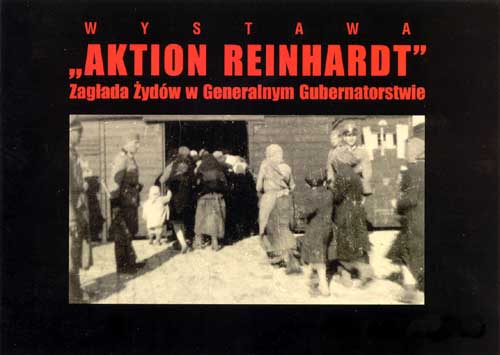The exhibition will be opened on November 7th, 2002 at 9.00 a.m. in the Majdanek State Museum in Lublin. The exhibition was prepared by the Branch Public Education Office of the Institute of National Remembrance in Lublin with a co-operation of the Majdanek State Museum.
In the years 1942-1943 the occupied Polish territories which were part of the General Government were a scene of an unprecedented crime committed on a massive scale against Jews. As a result of the Aktion Reinhardt the whole Jewish communities disappeared forever from Polish towns and townships which had been an inherent element of these places for ages. Jews were exterminated in the gas chambers in Bełżec, Sobibór and Treblinka. Thousands were murdered in massive executions which accompanied the liquidation of ghettos or died while being deported to extermination camps. The activities reached their climax in the period from March to December 1942. All in all, in the time between March 16th, 1942 and November 4th, 1943, two million people were killed. This number is larger than the number of victims who were killed in the period of two years in the extermination camp of Auschwitz-Birkenau. Not only Polish but also German, Austrian, Czech, Slovak, Dutch and French Jews were victims of the Aktion Reinhardt.
The authors of the exhibition made an attempt to explain what was this unprecedented operation, what mechanism underpinned it and what was its origin and scenario, its organizers and perpetrators as well as what were the reactions both Jews and Poles. The answer emerges from the pages of documents (both German and Polish) and fragments of testimonies of witnesses and survivors. In some cases when original documents were missing, the authors used scientific publications. Rare photographs are yet another asset of the exhibition. Some of them are going to be displayed for the first time.
